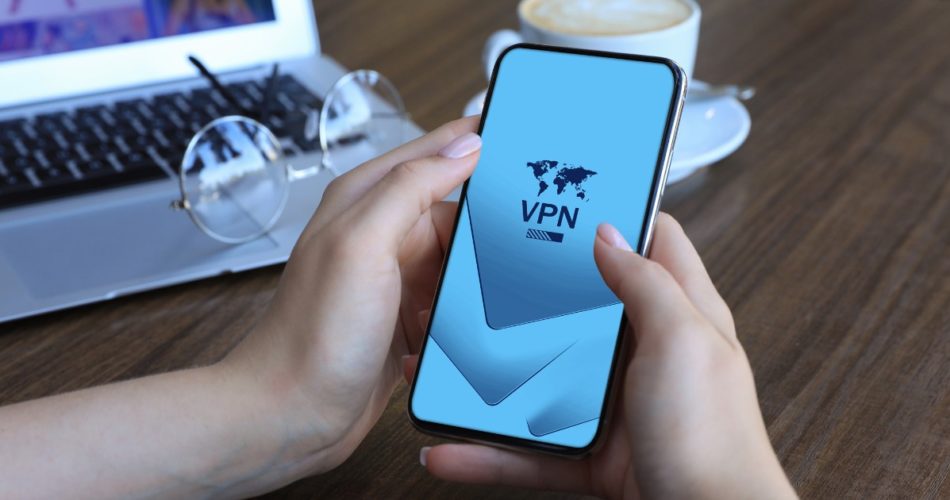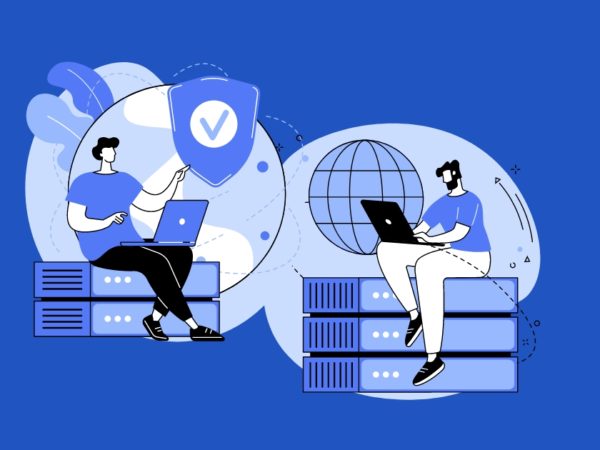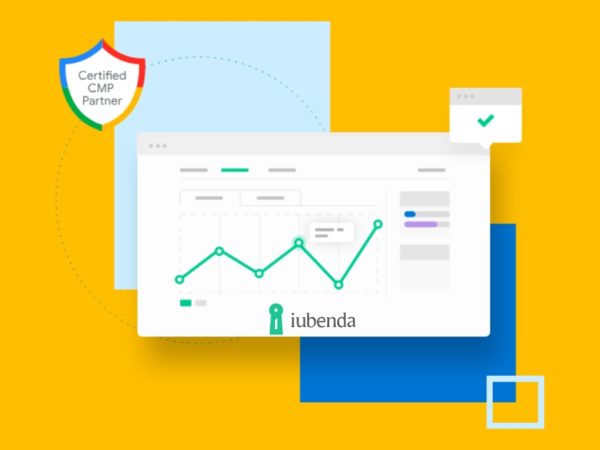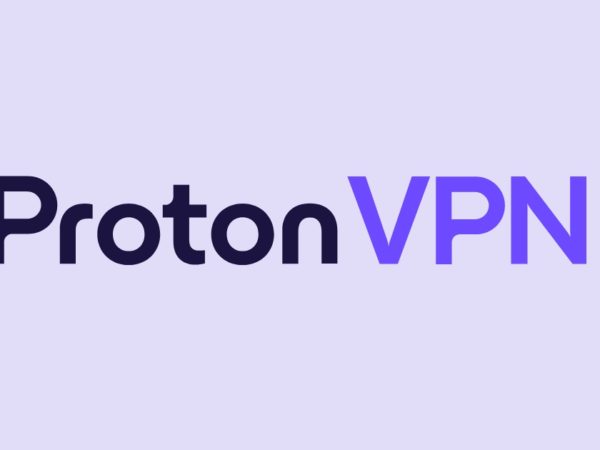<img alt="virtual-private-network-geekflare" data- data-src="https://kirelos.com/wp-content/uploads/2023/10/echo/virtual-private-network-geekflare.jpg/w=800" data- decoding="async" height="420" src="data:image/svg xml,” width=”800″>
A tech explainer about VPNs, how they work, their types, benefits, security concerns, and more.
As per Surfshark, a leading VPN service provider company, over 31% of internet users subscribe to VPNs. That’s one-fifth of the global population.
The reasons are plenty.
First, there is hardly any 100% surveillance-free country on this planet. And there are numerous internal and external factors behind that; some of them, I feel, legitimately serve the public interest. Still, there is no denying that some governments exist to keep tabs on their citizens.
Besides, internet censorship is another issue affecting us all.
Factor in the public WiFi scams, and the internet is slightly short of being a digital disaster, desperately gasping for a lifeline. Plus, with, how really safe is your personal data online? Considering all this, VPNs surely emerge as the saviors!
VPNs: The Saviors!
Virtual Private Network, in simple terms, puts a privacy blanket on your internet data such that it remains secret even to your internet service provider, government, or any snooper.
The VPN server acts as a bridge between your device and the rest of the internet. Technically, this means everyone else sees the IP address of the VPN server and not yours, making you anonymous.
The encryption takes place on the user’s machine with VPN protocols (OpenVPN, WireGuard, etc.). Leaving aside a few features, the VPN clients are just a graphical way of deploying these protocols on our machines. So, when we say someone uses a VPN, it actually means using a VPN protocol via the client.
These protocols encrypt data on your machine and send it to the VPN server, where it’s unencrypted and sent to the respected destinations in the supported formats. The response is again encrypted at the VPN server before being sent back to the user.
This non-stop encryption-decryption cycle keeps your internet activities private.
As a matter of fact, this encryption is so tough to break that some countries (like North Korea, Iraq, etc.) have banned VPNs entirely, while others (such as China, Russia, Turkey, etc.) heavily regulate their use.
On a user level, you can also check if the data is actually encrypted with network analysis tools, such as Wireshark. Interestingly, you now also have browsers with built-in VPN!
Types of VPN
Based on the factors like platform, use cases, etc., there are many types of VPNs, such as:
- Remote access VPN
- Site-to-Site VPN
- Extranet VPN
- Intranet VPN
- Mobile VPN
- Mesh VPN
- Cloud VPN
- SSL/TLS VPN
- SSH VPN
Even the protocols, OpenVPN, WireGuard, IKEv2, etc., are technically standalone VPNs. We can also roughly divide all VPNs into two types based on their application: personal and business VPNs.
Benefits of using a VPN
So why should you use a VPN besides trying to anonymize your internet footprint? Here are a few reasons:
- Public WiFi is never safe. A few networks we consider “public” are actually ad-hoc networks set up by a nearby cybercriminal. They can log internet activities, including any passwords or financial information we enter. Using a VPN encrypts the data and ensures safety even on such insecure networks.
- Access to location-specific deals. Not everything we purchase has the same price tag everywhere. In fact, some brands factor in purchasing power parity for pricing their products in different markets. In these situations, one can benefit from a VPN to buy goods at a discounted price.
- Unrestricted entertainment. Likewise, VPNs help us to enjoy land-locked entertainment content by spoofing our actual location. Actually, VPNs for streaming are among the foremost reasons many users subscribe to VPNs in the first place.
When we know about what a VPN does, it’s equally important to look at the other side.
Limitations of VPNs!
Some users think of VPN as an invincible shield that protects them from every internet threat, which is NOT true. So, while it’s good on the privacy front, one needs to understand the security aspect as well.
VPNs are helpless against malware. Though some VPNs have malware blockers, most lack such a feature. And even if they have malware protection, a dedicated antivirus will do the job far better in most cases. To reiterate, a malware infection acquired from visiting a dodgy website does similar damage with and without a VPN.
Scams are dangerous even for VPN users. Events like phishing scams, ransomware attacks, spyware, social engineering, etc., are immune from VPNs. Such scams can be the results of downloading malware or visiting fake replicas of legitimate websites, followed by entering personal information.
VPN users are also tracked. Most websites employ some kind of cookie-based tracking. This is done for targeted advertising and visitor analytics. Though a VPN gives you a random IP address, it can’t help you evade this form of tracking.
Consequently, VPNs are a part of the broader cybersecurity puzzle, with many other crucial components, such as antivirus software, password managers, multi-factor authentication, etc., a user should deploy alongside.
Choosing a Good VPN
The industry is flooded with VPN service providers. And like any product category, the number of bad ones is far greater than the good VPNs.
Here, I list a few factors to consider while shopping for VPNs.
- Headquarters: Not just dictatorships, even the so-called “first-world democracies” are not that privacy-friendly. You can read about one such case where a “no-logs” VPN cooperated with the FBI, resulting in the arrest of its user. Therefore, try to opt for VPNs that aren’t based in countries that are members of any surveillance alliance, such as Five, Nine, & Fourteen Eyes.
- Protocols: When we say VPNs, we actually mean using protocols. Unfortunately, a few VPNs skip over some of the safe ones and still offer outdated protocols, even at the cost of user privacy. Currently, OpenVPN and WireGuard are two of the best available you should look for.
- Encryption: This determines how tough it is to make sense of the encrypted data. Based on a VPN service provider, a VPN protocol can use multiple encryption ciphers. As of now, AES-256-bit encryption is most used by leading VPNs. Additionally, ChaCha20 is another good one, which is used in the WireGuard protocol.
- Server Network: This can be vital for someone needing to access geo-restricted content. Therefore, check if the VPN has servers in the country of your interest. In addition, try not to get swayed by the “worldwide servers” claim, as you will end up using only a few, and there is a lot more to performance than just numbers.
- General Features: The bare minimum I would advise is split tunneling. Besides, streaming and P2P optimized servers, adblocker, auto-connect, static IP, etc., are nice to have. Please remember these features may vary among the applications of the same VPN service. For instance, a VPN might advertise split tunneling, even if only its Windows application has that ability, while the other apps (for macOS, Android, etc.) don’t.
- Security Features: There is no end to this category. However, you should not settle without a kill switch. And it’s a whole lot better if you can also get multihop, Tor over VPN, malware blocker, IPv6 support, and IP rotation.
- Geo-unblocking: It’s one of the most sought-after attributes of any VPN. Many countries, organizations, and services block internet users using VPNs. Server obfuscation is a specific feature that works in this regard. Unsurprisingly, only a few VPN providers offer obfuscated servers, and even then, there is no guarantee it will work because of ever-evolving restrictions. What comes in handy here is prompt customer support and a money-back guarantee if nothing works.
Furthermore, check out what the existing users are talking about; Reddit can be a good place to go through “mostly unbiased” user reviews on the best free VPNs etc.
In addition, there are a few more things that we have already covered in VPN features to look out for.
Risks of using a VPN
While it sounds like turning into a safe haven, many VPNs, put simply, are dangerous. And though this is common with free VPNs to sell user data or bandwidth for profit, even all the paid ones aren’t as safe as they advertise.
In reality, using VPNs is choosing a company stationed in another country over your internet service provider and government. In simple words, it’s a gamble which can go either way.
First, your VPN company can see everything that you want to hide from your ISP. There might be a few clauses in the terms of service most of us never care about when shopping.
In addition, your country might put you in jail for simply using a VPN. That’s why you must check in-depth about the local rules for VPN usage.
Another risk is a false sense of security. So, while a good VPN encrypts data, there is a minute chance you can still be tracked with sophisticated mechanisms, such as traffic correlation attacks. Moreover, the risk of malware and cyber scams remains virtually unchanged even when using a VPN.
Finally, using VPNs for illegal activities is never a great idea since the company behind it can buckle under the pressure of law enforcement agencies. Plus, there is nothing like 100% no logs VPN service.
VPNs: The Need of the Hour?
VPNs were made keeping businesses in mind. However, VPNs for business also they turned out to be the necessity of an average internet user.
In short, they protect your internet activities so that no one else can “take a look.” I, for one, plan to base my future digital life on them.
The only aspect one needs to keep in mind is to use only reliable VPNs. And for that, I suggest you give ProtonVPN a try. Windscribe is also a good one.
Next up, read about why if you perform these 6 online activities, a VPN is a must for you.



